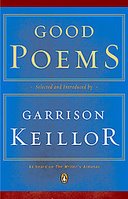New Blog Address
I've emailed several people with the new address and I've posted it on Facebook, but if you still haven't received the new address, please email me!
"Sometimes I wonder about my life. I lead a small life. Valuable, but small. And sometimes I wonder, do I do it because I like it, or because I haven’t been brave? So much of what I see reminds me of something I’ve read in a book, when shouldn’t it be the other way around? I don’t really want an answer. I just want to send this cosmic question out into the void. So, goodnight, dear void."

 Well, brand new to me, that is.
Well, brand new to me, that is.Labels: Teaching
 When I was about ten years old, I became fascinated with British royalty and with Princess Diana in particular. And though I've outgrown many aspects of my fascination, I still can't resist an occasional biography of her. About three years ago, I read Paul Burrell's book A Royal Duty while I was on vacation with my family and loved it. And so when I read favorable reviews of Tina Brown's new book The Diana Chronicles, I had to get it.
When I was about ten years old, I became fascinated with British royalty and with Princess Diana in particular. And though I've outgrown many aspects of my fascination, I still can't resist an occasional biography of her. About three years ago, I read Paul Burrell's book A Royal Duty while I was on vacation with my family and loved it. And so when I read favorable reviews of Tina Brown's new book The Diana Chronicles, I had to get it. Throughout the biography, usually expressed after an account of some off-the-wall action of Diana's, Brown takes a position that many others have taken on Diana: that she was a woman who might have led a happier, quieter--though, most certainly, far more dull--life had she not married into the Royal Family. Much of the conflict seems to come down to "she didn't understand them, they didn't understand her." Brown addresses and dismisses any suggestion that the monarchy is in danger of not surviving. But she does trace the transformative affects that Diana has had on the Royal Family. If you're interested in Princess Diana, I think this book is worth a read.
Throughout the biography, usually expressed after an account of some off-the-wall action of Diana's, Brown takes a position that many others have taken on Diana: that she was a woman who might have led a happier, quieter--though, most certainly, far more dull--life had she not married into the Royal Family. Much of the conflict seems to come down to "she didn't understand them, they didn't understand her." Brown addresses and dismisses any suggestion that the monarchy is in danger of not surviving. But she does trace the transformative affects that Diana has had on the Royal Family. If you're interested in Princess Diana, I think this book is worth a read.



Dear one, how many years is it - I forget -
Since this luminous evening when you joined us
In the celebration of whatever it was that we were celebrating - I forget -
It is a mark of a successful celebration
That one should have little recollection of the cause;
As long as the happiness itself remains a memory.
Our tiny planet, viewed from afar, is a place of swirling clouds
And dimmish blue; Scotland, though lodged large in all our hearts
Is invisible at that distance, not much perhaps,
But to us it is our all, our place, the opposite of nowhere;
Nowhere can be seen by looking up
And realising, with shock, that we really are very small;
You would say, yes, we are, but never overcompensate,
Be content with small places, the local, the short story
Rather than the saga; take pleasure in private jokes,
In expressions that cannot be translated,
In references that can be understood by only two or three,
But which speak with such eloquence for small places
And the fellowship of those whom we know so well
And whose sayings and moods are as familiar
As the weather; these mean everything,
They mean the world, they mean the world.
 I was struck today while reading through Book 16 of the Iliad with my 8th graders that as Christians, we probably have more in common with the mindset of these ancient pagan characters than we do with modern-day nonbelievers. What I mean by that is that these characters have a unified world. Everything happens for a reason. A storm is not merely a storm; it's an indication of the current emotional state of the gods. A bird is not merely a bird; it's an indication of how a battle will turn out. And regardless of how skilled one might be as a warrior, ultimately the success or failure of anything is, as Ajax realizes as he fights off Hector from the Greek ships, up to the will of the gods. I hasten to clarify that I am not implying that God treats us according to his whims or that we are ruled by an impersonal Fate. There are certainly deep distinctions between the God of the Bible and the Greek gods of the Iliad. In fact, I'll probably have my students write an essay on that very topic when we're done reading the epic. But today I was struck not by differences but by similarities -- that the world is not divided into neat little compartments as I so often tend think it is, but rather that everything is connected and that our individual actions and the events swirling about us and the will of a deity are wrapped up into one complex, yet unified whole.
I was struck today while reading through Book 16 of the Iliad with my 8th graders that as Christians, we probably have more in common with the mindset of these ancient pagan characters than we do with modern-day nonbelievers. What I mean by that is that these characters have a unified world. Everything happens for a reason. A storm is not merely a storm; it's an indication of the current emotional state of the gods. A bird is not merely a bird; it's an indication of how a battle will turn out. And regardless of how skilled one might be as a warrior, ultimately the success or failure of anything is, as Ajax realizes as he fights off Hector from the Greek ships, up to the will of the gods. I hasten to clarify that I am not implying that God treats us according to his whims or that we are ruled by an impersonal Fate. There are certainly deep distinctions between the God of the Bible and the Greek gods of the Iliad. In fact, I'll probably have my students write an essay on that very topic when we're done reading the epic. But today I was struck not by differences but by similarities -- that the world is not divided into neat little compartments as I so often tend think it is, but rather that everything is connected and that our individual actions and the events swirling about us and the will of a deity are wrapped up into one complex, yet unified whole. Most mornings I try to catch "The Writer's Almanac" at 6:50 on our local NPR station. I've grown to love Garrison Keillor's voice reading me a poem as I merge onto 66 East.
Most mornings I try to catch "The Writer's Almanac" at 6:50 on our local NPR station. I've grown to love Garrison Keillor's voice reading me a poem as I merge onto 66 East.